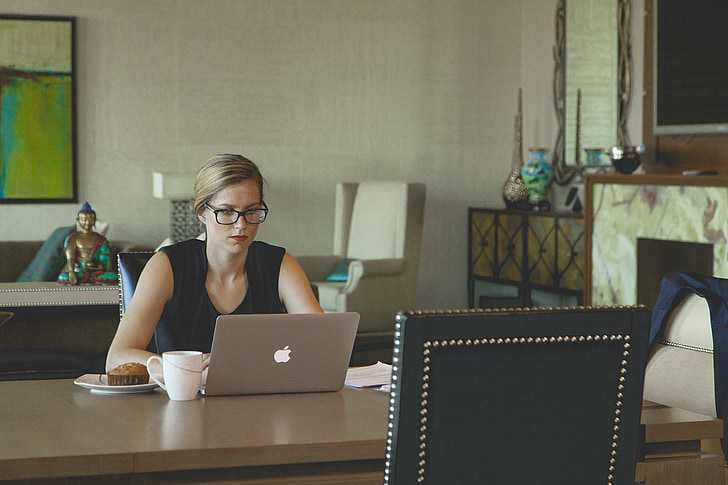Share your coffee stories with us by writing to info@comunicaffe.com.
MILAN – Setting regular times over the course of the day for coffee and lunch can help your daily routine as a remote worker, according to a blog post written by Emma Woodhouse. Since coronavirus has led millions of employees around the globe to work from home, some people are wondering how they’re going to cope. Many of us naturally work better away from the noise of an open-plan office. Others left to their own devices can quickly turn disheveled. And that’s when it’s business as usual.
In these times, you’re doing well if –by 8 am – you haven’t read enough articles to make you wonder if you qualify as an epidemiologist.
We are facing a human calamity. Advice to “put on lipstick and a blazer as if you’re going to the office” is going to fall on deaf ears. Many are now juggling distance learning for their kids, worrying about isolated older relatives and somehow getting on conference calls to speak coherently about topics other than the one on everyone’s mind. And no, we’re not wearing a blazer.
Yet, studies show that even in the hardest of times, maintaining a sense of normality has benefits. 49% of remote workers note that their biggest struggle is wellness-related.
Advice from travel risk services company, International SOS, recommends sticking to your routine as much as possible, looking after your health and staying connected.
1. Maintain your daily routine
“Start and end your day as a remote worker with a routine,” recommends International SOS, “set break times for coffee and lunch, maintain a dedicated work station and regular work hours.”
2. Take care of your physical and mental wellbeing
“A change of work environment can cause stress and anxiety,” they say, “a healthy body and mind will help you stay productive.” Among their advice is to avoid skipping meals and exercise where possible.
Our mental and emotional wellbeing can suffer at a time like this. But what we’re seeing online is a groundswell of people looking out for each other. Museums and galleries are offering free virtual tours, primary school teachers, fitness and yoga instructors are offering free tutoring online, and there are even virtual concerts. The opportunities for self-care are there even in this most uncertain time.
3. Stay connected with your team and your community
It’s in the small interactions with colleagues – where people become multifaceted, as opposed to two-dimensional avatars – that connections are made. In the absence of contact, find structured ways of staying in touch. “Keep your team informed about your priorities and work progress,” says International SOS, “over-communicate if you need to.”
Emma Woodhouse, Global Corporate Communications, CWT















